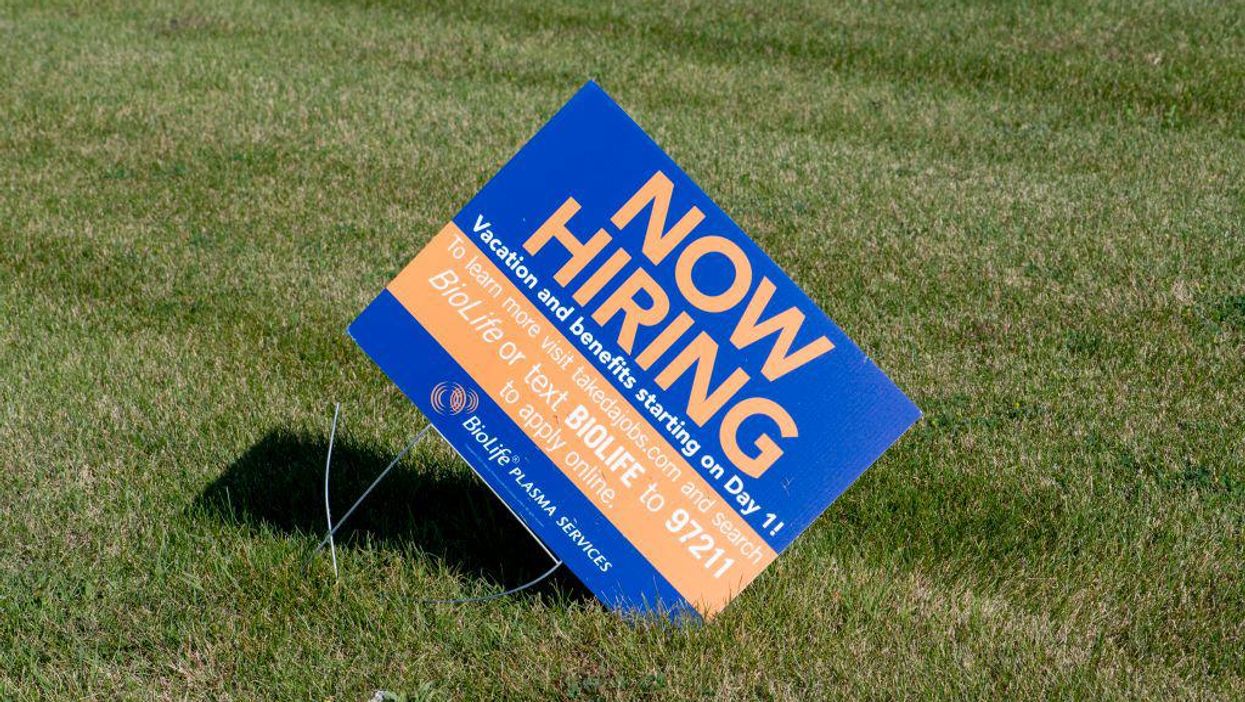
Michael Siluk/UCG/Universal Images Group via Getty Images

The U.S. economy added far fewer jobs in November than experts had predicted, as the country continues its slow recovery from the COVID-19 pandemic under the Biden administration.
According to the Bureau of Labor Statistics, nonfarm payrolls increased by just 210,000 for the month, well below the Dow Jones estimate of 573,000. The figure also came in significantly below October's job gains, which totaled 531,000.
Experts had believed that steady job growth would continue into the holiday season, but that has evidently not been the case. The report specifically noted that retail trade — one of the sectors hit hardest by the pandemic — actually declined over the month.
The sectors with the highest gains in November were professional and business services, transportation and warehousing, construction, and manufacturing.
The news also indicated that hiring began to slow even before the detection of the new Omicron coronavirus variant, CNBC reported. The variant, which caused mass global hysteria, wasn't detected until Thanksgiving weekend, or toward the end of the month.
Total nonfarm employment continues to lag behind its pre-pandemic levels, the report showed. While 18.5 million jobs have been added since April 2020, the economy remains down 3.9 million jobs, or 2.6%, from its previous high point in February 2020, before the pandemic began.
Though even as hiring slowed, the report showed that unemployment dropped to a post-pandemic low of 4.2% in November, narrowly besting predictions of 4.5%. This latter news came from the household data survey, one of two surveys used to compile data. The other survey records hiring among employers.
"As is the case from time to time, the two surveys painted somewhat different pictures of the economy," the New York Times explained, noting that the household survey showed the "number of employed Americans jumped by more than 1.1 million."
"And the overall participation rate, which measures the proportion of Americans who either have jobs or are looking for one, rose by 0.2 percentage point to 61.8 percent," the Times added.
Nick Bunker, economic research director at Indeed, told CNBC, "This report is a tale of two surveys. The household survey shows accelerating employment gains, workers returning to the labor force, and low levels of involuntary part-time work. The payroll survey shows a significant deceleration in job growth, particularly in COVID-affected sectors.”
The startling differences between the two surveys, if anything, show a hefty amount of volatility surrounding the economy. And many now fear that the emergence of the Omicron variant will only add to that volatility.
"We saw in a very real way a slowdown in hiring as a result of the Delta variant," Nela Richardson, chief economist for the payroll processing company ADP, told NPR. "There were fewer people going to restaurants. Fewer people traveling. And that had an impact on hiring. It likely had an impact on fewer people deciding to come back into the labor market."
She and others worry that Omicron may result in retelling that the same story.